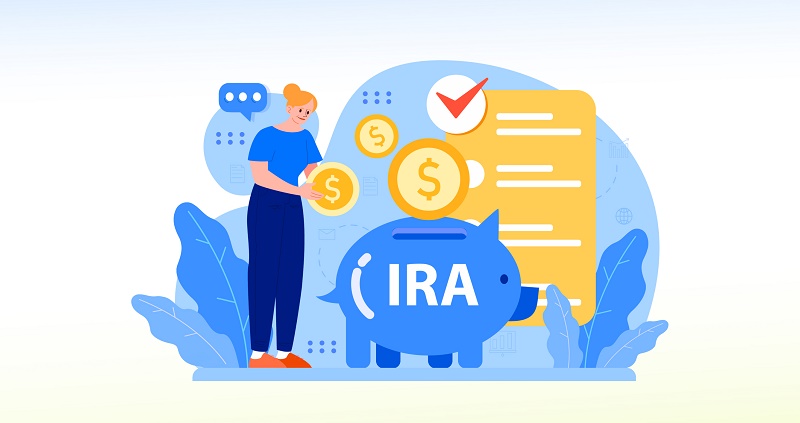South Dakota retirement taxes: What you need to know
The tax benefits of retiring in South Dakota and what you should know if you’re planning to retire in the Mount Rushmore State.
Home > Retirement > Retirement Taxes in South Dakota
South Dakota could be a retirement-friendly option: Things such as a lack of state income tax and low cost of living make the state a good choice for your golden years.
Taxes in the state are very lenient: You’ll pay no tax on Social Security, pension withdrawals, or alternative forms of retirement income.
There are many pros to retiring in South Dakota: Enjoy warm summers and plenty of beautiful nature.
Is South Dakota tax-friendly for retirees?
South Dakota is a state full of unique opportunities. From the rolling open plains to the striking view of Mount Rushmore, it’s a state that offers a mix of relaxation and surprises. But is South Dakota retirement-friendly?
When it comes to settling down after your working years, the state has more than just a few benefits. It’s one of the most tax-friendly states to retire in, largely due to its lack of income taxes. But income taxes aside, the state also offers other tax benefits that may appeal to retirees.
What taxes do you pay in retirement in South Dakota?
South Dakota retirement taxes are very favorable, which makes it a very popular state for people to move to during their golden years. Here are a few of the reasons why the state is so retirement tax-friendly:
Does South Dakota tax retirement income?
No, South Dakota does not tax any income on the state level. No income tax means your 401(k), IRA, and other sources of income are all tax-free, leaving you with more of your money to enjoy once you retire.
While you’ll be exempt from state taxes, you may still have to pay federal income tax so it is important to stay informed. The same applies to alternative forms of retirement income, such as money earned on investments, rental income, or income on other assets.
Does South Dakota tax Social Security?
No. South Dakota does not have state income taxes, meaning you can withdraw your Social Security payments without paying any tax at the state level. However, federal taxes may apply.
Does South Dakota tax pensions?
No. Your pension is not subject to state income tax. While your pension may be exempt from taxes at the state-level, you may still want to consider federal taxes.
How much do you pay in sales tax in South Dakota?
South Dakota charges a sales tax of 4.2%.1 This is much lower than other states, making it a popular choice for many retirees. While local sales taxes may also apply, the average state and local sales tax remains relatively low, at 6.11%.1
Sales taxes in South Dakota apply to goods such as clothing and groceries, while prescription medication and medical goods are tax-exempt, adding further financial benefits.
How much do you pay in property tax in South Dakota?
Selling and buying property in South Dakota is one of the few things that comes with a tax disadvantage. The state will charge property taxes of 0.99%,2 which is slightly higher than the national average. It’s worth considering, however, that the average house price in the state is relatively low, so you won’t feel the pinch too much when buying property.
Estate and inheritance taxes in South Dakota
South Dakota does not impose state estate or inheritance taxes, so you can pass down assets without worrying about state-level tax burdens. This could also be a good time to ensure your estate plan and beneficiaries are up-to-date. You might also want to note that inheritance taxes may vary by state, meaning local tax laws can still apply if your heir is living in another state.
The benefits and potential drawbacks of retiring in South Dakota
South Dakota’s taxes for retirees aren’t the only reason why retiring there could be a good idea. While there are many other benefits to spending your golden years here, you may still want to consider the potential drawbacks to see if this is the right choice for you.
Pros of retiring in South Dakota
South Dakota has a low cost of living: Living in South Dakota is generally considered to be quite affordable. With a relatively low cost of living, your retirement income and pension could go a long way here, giving you a happy retirement for years to come.
South Dakota has wonderful nature: One of the things South Dakota is most famous for is its great outdoors. The state offers many opportunities for outdoor enthusiasts, including Mount Rushmore National Memorial, Badlands National Park, the Black Hills, and the Missouri River.
It’s sparsely populated: Some retirement hotspots can feel a bit busy, with everyone rushing to get settled after their working years. South Dakota, on the other hand, has a lot more wildlife than people, meaning you’re much more likely to have a quiet, peaceful retirement.
Warm summers: Summer in South Dakota is often hot and dry, giving you plenty of opportunities to head outside and enjoy a new sport or hobby.
Cons of retiring in South Dakota
It can feel empty: If you enjoy the peace and quiet, South Dakota is the place for you. However, if you’re after vibrancy during your retirement, you might need to head into one of the more urban districts to find your community.
Cold winters: Winters in South Dakota can be cold, snowy, wet, and windy, so make sure you’re bundled-up inside by the time fall arrives. Significant snowfall may not be appealing for those looking to retire in a warmer climate, but may also be appealing to those who enjoy winter sports.
You might have to travel more: Because of how sparse parts of South Dakota are, you may find things like restaurants and entertainment being farther away than you could be used to. If you prefer everything at your fingertips, this might not be as ideal.
Plan for your retirement with high interest savings accounts
Moving during retirement can be an exciting start to your golden years. It’s important to consider the pros and cons, and ensure you are financially stable for such a move before making your final decision.
A high-interest savings account can be a safe way to boost your retirement fund. Compare the top rates on the Raisin marketplace and get started today!
The above article is intended to provide generalized financial information designed to educate a broad segment of the public; it does not give personalized tax, investment, legal, or other business and professional advice. Before taking any action, you should always seek the assistance of a professional who knows your particular situation for advice on taxes, your investments, the law, or any other business and professional matters that affect you and/or your business.


